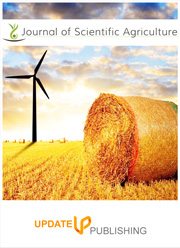Effect of salinity stress on carbohydrate, lipid peroxidation and proline contents of two horse gram [Macrotyloma uniflorum (Lam.) Verdc] varieties
DOI:
https://doi.org/10.25081/jsa.2017.v1i0.30Keywords:
Salinity stress, sugars, starch, proline, horse gram, carbohydrates, osmolytesAbstract
This study was conducted to investigate the effects of different concentrations (0, 40, 80 and 120mM) of salinity on horse gram [Macrotyloma uniflorum (Lam.) Verdc] plants grown in pots. The two horse gram varieties PAIYUR-2 and CO-1 were used for the study. Sampling was done on 15th Days After Treatment (DAT) and 30th DAT from control and salinity treated plants. The response of the horse gram plants to salinity stress was analysed by estimating the levels of carbohydrates, starch, lipid peroxidation, proline and glycine betaine. Higher salinity markedly reduced sugar concentration in both horsegram varieties, while starch content showed reverse trend. Lipid peroxidation (estimated by MDA content) significantly increased under salinity in both varieties but the rate of increment was higher in CO-1. The concentration of proline and glycine betaine were also altered under salinity. From the results of this investigation, it may be concluded that plants of variety PAIYUR-2 have high adaptive potential under salinity when compared to variety CO-1.



 .
.